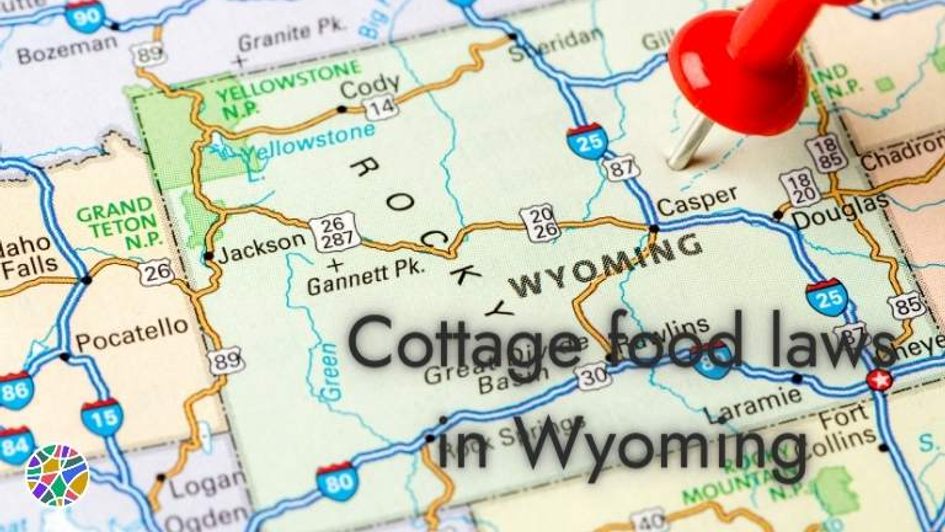
Are you a Wyoming resident with a passion for baking or cooking? Have you ever dreamed of starting your own small-scale food business right from the comfort of your own home? Well, you're in luck! Wyoming has embraced the concept of cottage food laws, making it easier than ever for individuals to turn their culinary talents into a thriving cottage food business.
Cottage food laws, in essence, allow individuals to prepare and sell certain types of homemade foods without the need for a commercial kitchen or meeting the stringent regulations that large-scale food businesses must comply with. These laws aim to empower individuals, particularly stay-at-home parents, retirees, or those simply looking for a side hustle, to generate income through their culinary skills while maintaining the flexibility and convenience of working from home.
In Wyoming, the cottage food laws are fairly straightforward. Let's take a closer look at the key details you need to know before diving into your cottage food adventure.
Eligible Foods: Wyoming's cottage food laws primarily cover non-potentially hazardous foods, which are foods that don't require refrigeration to remain safe for consumption. This includes baked goods like bread, cookies, cakes, and pastries, as well as items such as dried herbs, jams, jellies, granola, nuts, and popcorn. However, it's important to note that certain potentially hazardous foods, like homemade salsa, canned fruits, or vegetables, are not allowed under these laws.
Sales Channels: As a cottage food producer in Wyoming, you have several options for selling your delectable creations. You can sell your goods directly to consumers, either from your home or at venues such as farmers markets, fairs, and roadside stands. Additionally, you're permitted to make sales through the internet or by taking orders over the phone. This flexibility allows you to reach a wider customer base and grow your business at your own pace.
Labeling Requirements: Proper labeling is crucial when selling cottage foods. All products must be clearly labeled with the name of the food, a complete list of ingredients, and the following statement: "This product is homemade and is not prepared in an inspected food establishment." Ensuring accurate and informative labels not only helps your customers make informed choices but also demonstrates your commitment to transparency and food safety.
Sales Limit: Wyoming's cottage food laws specify that you can make up to $250,000 in annual gross sales of cottage food products. This generous limit provides ample room for growth and expansion. However, it's important to keep track of your sales and ensure compliance with any local regulations or zoning restrictions that may apply to your specific area.
Food Safety Training: While Wyoming does not require cottage food producers to undergo specific food safety training, it is highly recommended to acquire the necessary knowledge to maintain the highest standards of food safety and hygiene. Understanding proper food handling, storage, and sanitation practices will not only protect your customers but also help your business thrive in the long run.
By embracing cottage food laws, Wyoming has opened the doors to countless opportunities for aspiring food entrepreneurs. Starting a cottage food business allows you to showcase your culinary skills, connect with your community, and generate income, all while enjoying the comforts of home. With the right passion, dedication, and adherence to regulations, you can turn your kitchen into a thriving hub of delicious creations.
So, if you're ready to embark on an exciting culinary journey, why not explore the possibilities offered by Wyoming's cottage food laws? Let your imagination run wild, whip up your favorite recipes, and bring joy to the taste buds of your customers, one homemade treat at a time. Your cottage food business dreams can become a reality in the great state of Wyoming!
Periva is a marketplace and a growing community that provides all the tools, technologies, support to create and run your home based food business. Visit www.periva.com to learn more and get started on your entrepreneurial journey.
These guidelines may change from time to time. Please check with your local governing agencies for the latest updates.
Disclaimer: This blog post provides an overview of cottage food laws in the region and is not intended as legal advice. It's essential to consult with local authorities or legal professionals to ensure compliance with current regulations and requirements.

Give the gift of high quality local products and services, delivered sustainably in zero-waste packaging.
We have sent a confirmation email to you and your friend notifying them of your gift and how to use it.
They simply need to create an account on Periva.com, and the amount will automatically get applied to their account - which they can then use to order any item on Trashless - it's that simple.
If you have any questions or concerns, please write to us at support@periva.com
Welcome to Trashless - a community of consumers, producers and brands dedicated to making your life free of single-use packaging, and a world with a lot less trash.
Your order is confirmed!
Press 'My Deliveries' on the top right to see what's scheduled for delivery over the next 90 days.
Edit/Skip/Remove an item until the cut-off date and time mentioned.
Your credit card will be charged at 4pm the day before delivery.
Chat with us if you have any questions. Or better yet, text us at: 512.399.2525.
Reply: